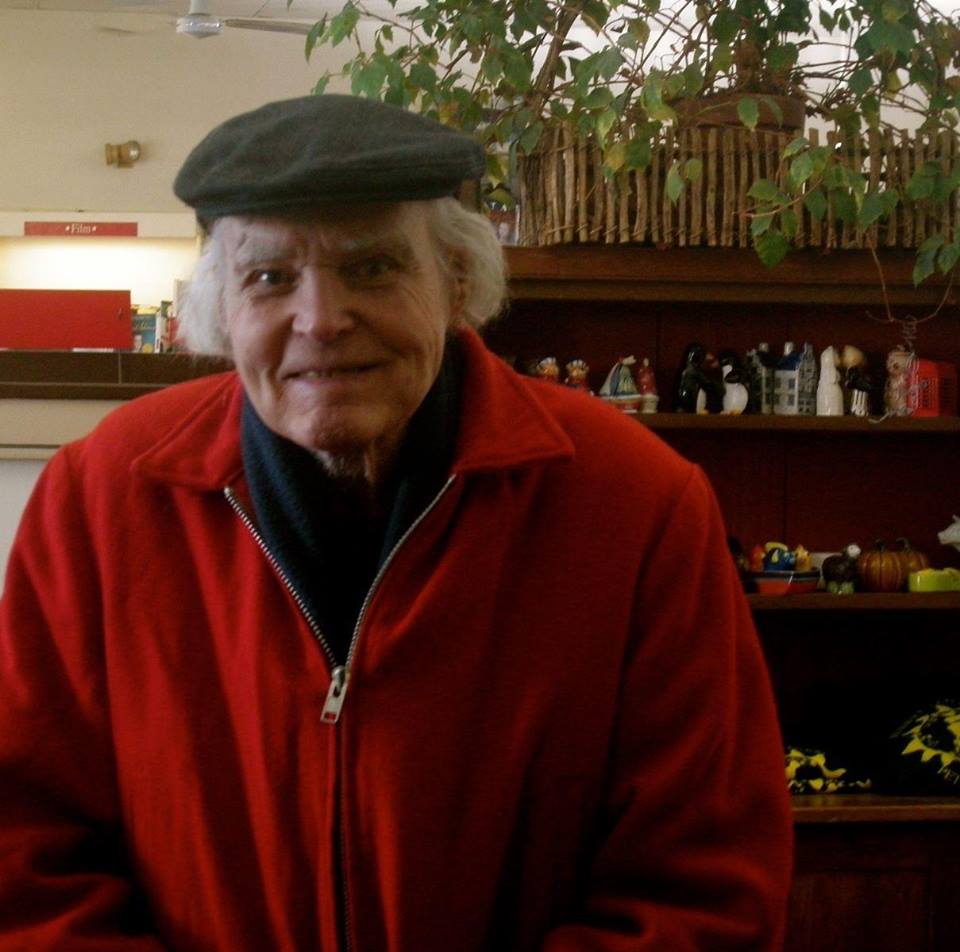Keene State Today [Keene State College Magazine] Spring 2009
Alumni Spotlight: Bob McQuillen '59
Thirty-five years of teaching, 1,300-plus contra dance tunes, six decades on the piano bench, millions of feet set to dancing – and the numbers don't even begin to describe the man's expansive spirit.
Step into Aesop's Tables café in Peterborough for morning coffee, and you'll likely see a distinguished-looking gentleman, his long white locks topped by a hat, returning greetings from various comers and goers. Chances are it's one of his many students from his 35 years of teaching at Conval High School.
Or it might be one of the many folks who know him from contra dances, where he is beginning his seventh decade of playing piano.
The man is Bob McQuillen, Keene Teachers College class of 1959.
Ask Bob where he grew up, and he'll tell you he hasn't – which in some respects is true. He was born in Massachusetts. During the Depression, his parents bought a farm in New Boston, where they raised chickens, living without electricity and with minimal plumbing. Bob joined the Marines in 1943 and spent time in the Pacific. Returning home in 1946, he met his eventual wife at a contra dance, and settled down in that regard, but occupationally he was lost. He spent five years "twisted, tossed, turned, and troubled," as he recalls. In 1951, much to the consternation of his wife and parents, he rejoined the Marines. He quickly became a corporal, and was assigned to teach mapping, field sanitation, and using the M1 rifle. He turned out to be an excellent teacher. When he returned to civilian life in 1954, he decided to enroll at Keene Teachers College.
Bob enjoyed college life. He sang in the chorus and became a lunchtime cook at the Campus Club. He wanted to learn archery, but instruction was provided only for women. After convincing the archery coach to take him, he then had to prove to the athletic director, Coach Sumner Joyce, that his intentions were pure. He believes that he is probably the only man to participate in the women's physical education program at the College.
But the academic road was not easy, and during his junior year he ran into a couple of subjects that were like stonewalls. He found guidance from Dorothy Randall and Dean Barry, who suggested that he try the industrial arts curriculum. He did his student teaching at Peterborough High School (now Conval), and made a good enough impression to be hired. His military experience enabled him to get a higher starting salary than most of his classmates: $4,000. Bob retired from Conval in 1984, then spent the next 10 years as a substitute teacher and weight-lifting coach.
While all this was going on, Bob had become a contra dance musician, first on accordion and then piano. In 1973, he began writing dance tunes: jigs, reels, waltzes, and polkas, often named for people he knew. In 1976, when he had written 100 tunes, he published his first book. This past year, 2008, saw the issuance of book number 13, with volume 14 in progress. His music has been played all over the world, and his waltz "Amelia" is widely considered to be one of the most beautiful melodies in the genre.
At age 85, Bob is without a doubt the patriarch of contra dance piano players, not just in New England, but nationally. In 2002, he was presented with the National Endowment for the Arts National Heritage Fellowship. He is the subject of a recent documentary by filmmaker David Millstone called Paid to Eat Ice Cream, titled after Bob's explanation for what it's like to be a contra dance musician.
His schedule has slowed a little. He's a regular at the Nelson Monday-night dance, where he is even known to sing the opening polka if the fiddler is running late. He usually plays at the Peterborough Town House on the first Saturday of each month and makes regular trips to the Pacific Northwest. His material generosity, especially to young musicians, is well known. His generosity of spirit enriches the lives of all around him. And, as anyone who talks to him can tell you, he is still a great teacher.

